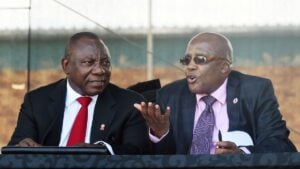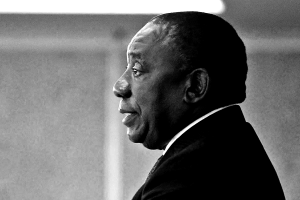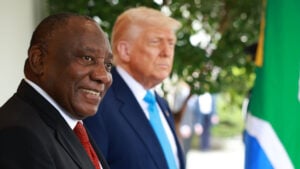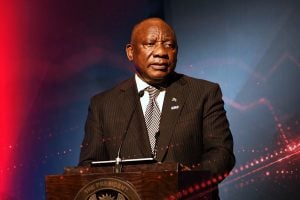Surprise twist in Vodacom’s R13 billion fibre deal
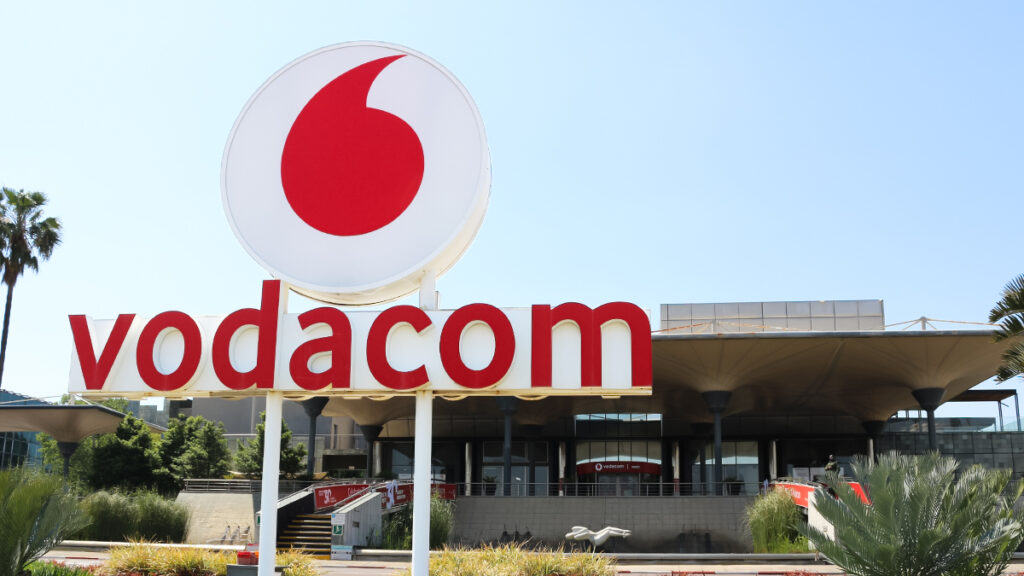
The Competition Commission announced an agreement with Vodacom over its proposed deal to acquire a significant stake in Maziv.
Maziv is a wholly-owned subsidiary of Community Investment Ventures Holdings (CIVH). It is the parent company of fibre operators, Vumatel and DFA.
Vodacom has been pushing to acquire 30% to 40% of the group for around R13 billion to boost its own presence in the market and accelerate access to fibre in South Africa.
The tribunal blocked the deal in October 2024, following the commission’s recommendation that the merger be stopped.
The tribunal argued that the move would lessen competition in South Africa’s fibre market.
After the Competition Tribunal’s rejection of the deal, the groups opted to take the matter to the Competition Appeals Court.
However, under the terms of the new deal, the commission will not oppose Vodacom’s appeal and will instead offer supporting information on how the merger will, in fact, not lessen competition.
According to the commission, the parties have negotiated and revised terms and conditions that “substantially remedied” the competition concerns raised by the commission in its recommendation to the tribunal that the merger be prohibited.
“This agreement follows constructive engagements between the commission and the merger parties to remedy the deficiencies in the previous conditions identified by the tribunal in its prohibition of the merger,” it said.
The commission said the proposed conditions did not adequately address three primary competition concerns when the tribunal hearings concluded.
1. Reduced competition among fibre players
Firstly, there were worries that the merger would reduce horizontal competition between Fixed Wireless Access (FWA) and Fibre to the Home (FTTH).
To address this concern, Vodacom initially said it would offer FWA where it rolled out 5G and that it would price it ‘competitively’.
However, the commitments on the rollout of 5G sites and the rollout of FTTH were insufficient to incentivise the parties to encourage consumer access at competitive prices and ensure third-party access to FTTH.
The revised conditions now address these shortcomings by improving Maziv’s capex commitment and extending it to a five-year period post-merger to ensure that Maziv remains incentivised to service third-party network operators.
The revised conditions also promote competition between FTTH and FWA through enhanced coverage and connection commitments.
The commission said the parties will need to price competitively to achieve the connection commitments.
Vodacom and Maziv have also agreed to maintain lower-cost broadband packages in the market to ensure that, especially lower-income consumers have a range of competitively priced packages to choose from.
2. Overlap of infrastructure and possible price hikes
The second concern was that the deal would lead to horizontal overlap in FTTH infrastructure and to potential price increases post-merger.
The commission said the previous conditions were inadequate insofar as they included a ‘weak’ divestiture condition that did not adequately incentivise the merging parties to divest the overlapping infrastructure.
The revised conditions put in place a standard divestiture arrangement whereby the failure to sell the assets within a particular period results in a trustee divestiture process to ensure the assets are divested and pre-merger competition is restored.
The condition follows the standard formulation used in other merger transactions and requires that a transparent and competitive process be followed to identify a proposed purchaser.
3. Worries over foreclosures
The third concern raised was that the merger would lead to vertical foreclosures.
Although there were fairly comprehensive conditions in place to address foreclosure, there were notable challenges with monitoring and enforcing the conditions, the commission said.
This resulted in concerns that action would not be fast enough to prevent foreclosure from occurring and harming competition.
The revised conditions introduce some structural changes to Maziv’s governance structure that limit the merged entity’s incentives to foreclose competitors.
The conditions now also incorporate an enhanced fast-track interim relief process that will address potential foreclosure concerns while the lengthier formal process to investigate any alleged foreclosure is underway.
This ensures that any attempt to get a first-mover advantage that will have an enduring effect in the market can be prevented through fast-track interim relief.
Other changes to the conditions
Outside of the three main concerns, the commission added that the new conditions also significantly improve the public interest commitments.
These include:
- Additional capex spend to roll-out new Fibre-to-the-Business (FTTB), FTTH and Fibre-to-the-Site (FTTS) infrastructure;
- Free access to 1Gigabit per second fibre lines for public libraries and clinics passed by FTTH infrastructure;
- An increase in the number of police stations that Vodacom will provide with FWA products;
- An additional commitment to enterprise development, and
- An increase in the employee share ownership plan as previously agreed.
Competition Commissioner Doris Tshepe said the revised conditions will ensure that South Africa as a whole benefits from the merger, which was not the case before.
“Access to reliable, high-speed internet is the cornerstone of a dynamic economy and a democratic society,” she said.
“The Commission is confident that the revised conditions agreed with the merger parties will ensure that South Africa will benefit from the continued competitive prices and product choices in this critical sector.”
The matter will now proceed to the Competition Appeal Court unopposed, and the commission will inform the court how the enhanced conditions address the concerns it previously raised about the proposed transaction.




